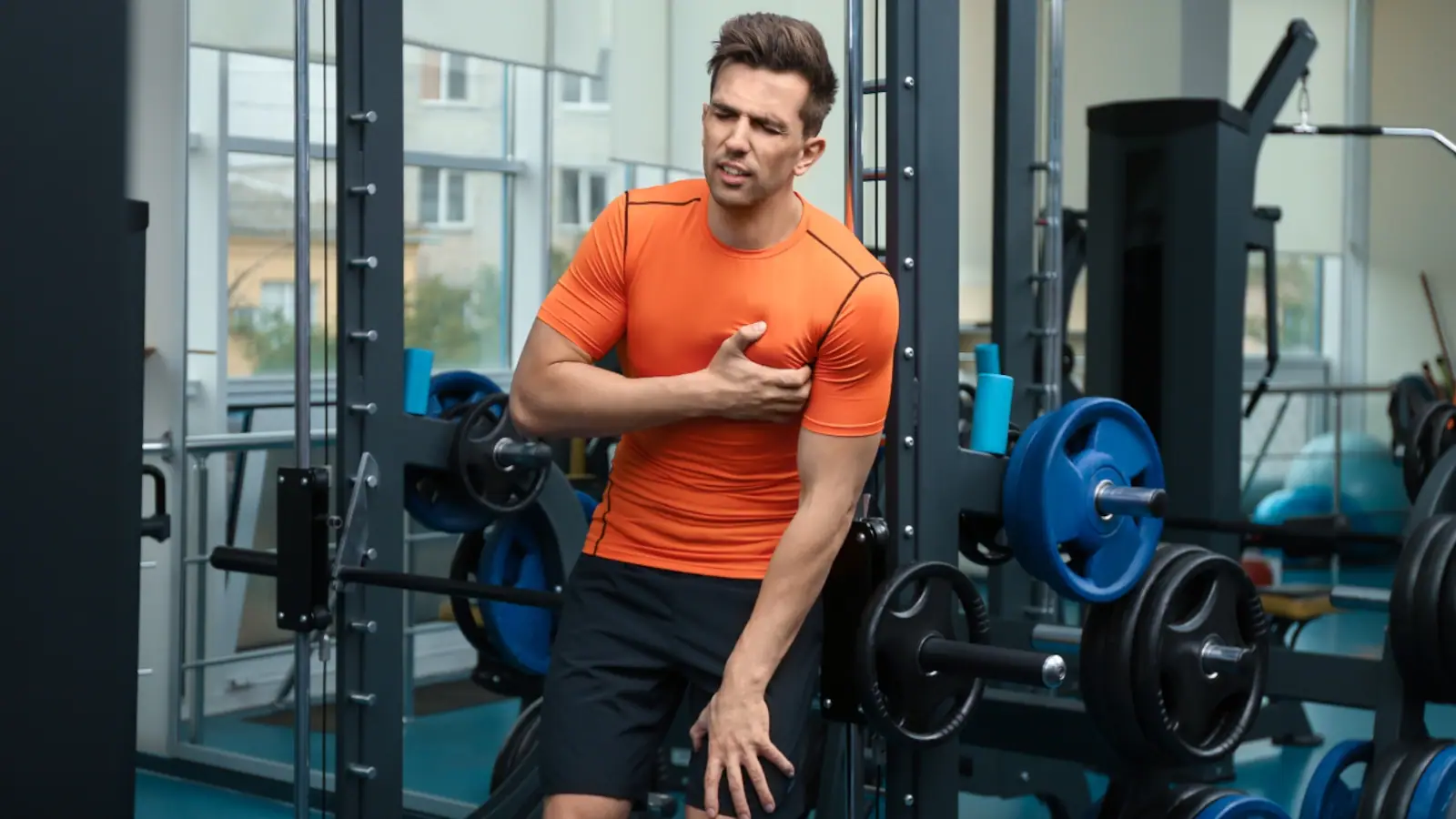New Delhi, 07 July 2025: In recent years, there has been a disturbing rise in the number of young individuals, particularly gym-goers and fitness enthusiasts, experiencing sudden heart attacks. Traditionally seen as a condition affecting older adults, heart attack are now striking those in their 20s, 30s, and 40s—often with devastating consequences. Social media flooded with shocking news of young athletes, influencers, or fitness lovers collapsing during workouts or shortly afterward. This has raised important questions: Why are these seemingly healthy individuals falling prey to cardiac events? What are the hidden triggers behind these unexpected heart attacks? Let’s explore the possible factors contributing to this alarming trend.
Silent Risk Factors That Are Often Ignored
Many young adults believe that being physically active and having a toned body means they automatically protected against heart diseases. However, several hidden risk factors often go unnoticed. Genetics plays a significant role; if a person has a family history of heart disease, they are automatically at a higher risk, regardless of their fitness levels. Moreover, undiagnosed underlying conditions such as high blood pressure, high cholesterol, or diabetes often overlooked in the younger population. These conditions silently damage the arteries over time and increase the chances of plaque formation, which can rupture and block blood flow, leading to a heart attack. Many young people unaware of these risks because they do not go for routine health screenings, assuming they are too young to be affected.
Overtraining and Extreme Workouts
While exercising is beneficial for the heart, pushing the body beyond its capacity can have the opposite effect. Overtraining, lifting extremely heavy weights, or engaging in prolonged high-intensity workouts without proper rest and recovery can put excessive stress on the heart. The sudden spike in blood pressure and heart rate during strenuous exercise can act as a trigger, especially if there are underlying blockages or abnormalities in the heart’s structure. Gym-goers often follow aggressive workout regimes in pursuit of faster results, ignoring signs of fatigue, chest discomfort, or dizziness. This can lead to a phenomenon known as “exercise-induced cardiac arrest,” which occurs when the heart cannot cope with the excessive physical strain being placed on it.
Misuse of Supplements and Steroids
The fitness industry is flooded with products that promise rapid muscle gain, fat loss, or increased stamina. Unfortunately, many of these supplements not regulated and may contain substances that can be harmful to the cardiovascular system. The use of anabolic steroids, testosterone boosters, and pre-workout stimulants is particularly dangerous. These substances can lead to high blood pressure, increased clotting tendency, and even changes in the structure and function of the heart muscles. In many cases, young gym-goers unknowingly consume these products through protein powders or fitness drinks that laced with hidden stimulants. Long-term misuse of such substances can silently damage the arteries and increase the risk of sudden cardiac events.
Mental Stress and Lack of Sleep
Another silent trigger that often gets overlooked chronic mental stress and poor sleep hygiene. Young professionals today often juggle between demanding jobs, long commutes, and high career expectations, leaving very little time for relaxation or quality sleep. Stress increases the levels of cortisol, a hormone that, in high concentrations, can lead to inflammation, increased blood pressure, and plaque formation in arteries. Poor sleep or sleep apnea has also directly linked to heart problems. It causes fluctuations in blood oxygen levels and blood pressure during the night, placing significant strain on the cardiovascular system. Unfortunately, these lifestyle stressors normalized in today’s fast-paced culture and rarely addressed until a health scare occurs.
Dehydration and Heat Exposure During Workouts
Exercising in extreme heat or failing to hydrate adequately can also increase the risk of heart attack. Dehydration leads to a reduction in blood volume, which can cause the heart to work harder to pump blood to the organs. Additionally, electrolyte imbalances due to excessive sweating or use of diuretics can disrupt the heart’s electrical rhythm, potentially leading to arrhythmias or cardiac arrest. Many gym-goers and athletes push through workouts even in hot environments, without adequate hydration or cooling measures, which could put them at serious cardiovascular risk.
Ignoring Early Warning Signs
One of the biggest reasons for sudden cardiac deaths in young people is the failure to recognize or act upon early warning signs. Symptoms like chest pain, shortness of breath, palpitations, dizziness, or unexplained fatigue often dismissed as temporary effects of exertion or stress. In reality, these could be subtle indicators of an impending heart attack. Young individuals are less likely to consult a doctor for such symptoms, leading to missed opportunities for early diagnosis and timely intervention. Some even continue working out despite discomfort, increasing the risk of a full-blown cardiac event during or after exercise.
Lack of Cardiac Screening for the Young
In many parts of the world, cardiac screening generally recommended for older adults or those already diagnosed with comorbidities. However, the new wave of heart attacks among the young demands a change in this approach. Young gym-goers, athletes, or even seemingly healthy individuals with a stressful lifestyle should consider getting a basic heart check-up. An electrocardiogram (ECG), echocardiogram, cholesterol levels, and blood pressure monitoring can reveal a lot about the heart’s health. Preventive screenings can detect congenital heart issues or early signs of coronary artery disease, allowing timely lifestyle changes and medical management.
The rise in heart attacks among youngsters and gym-goers is a warning sign that health not defined by external appearance alone. It’s important to understand that a toned body doesn’t always mean a healthy heart. Listening to your body, avoiding extreme workouts, staying hydrated, managing stress, sleeping well, and being cautious about supplement use are crucial to protecting your heart. Most importantly, regular health check-ups—even for the young—can go a long way in preventing tragic cardiac events. Fitness should be about long-term health, not short-term gains, and that includes taking care of the heart from the inside out.







